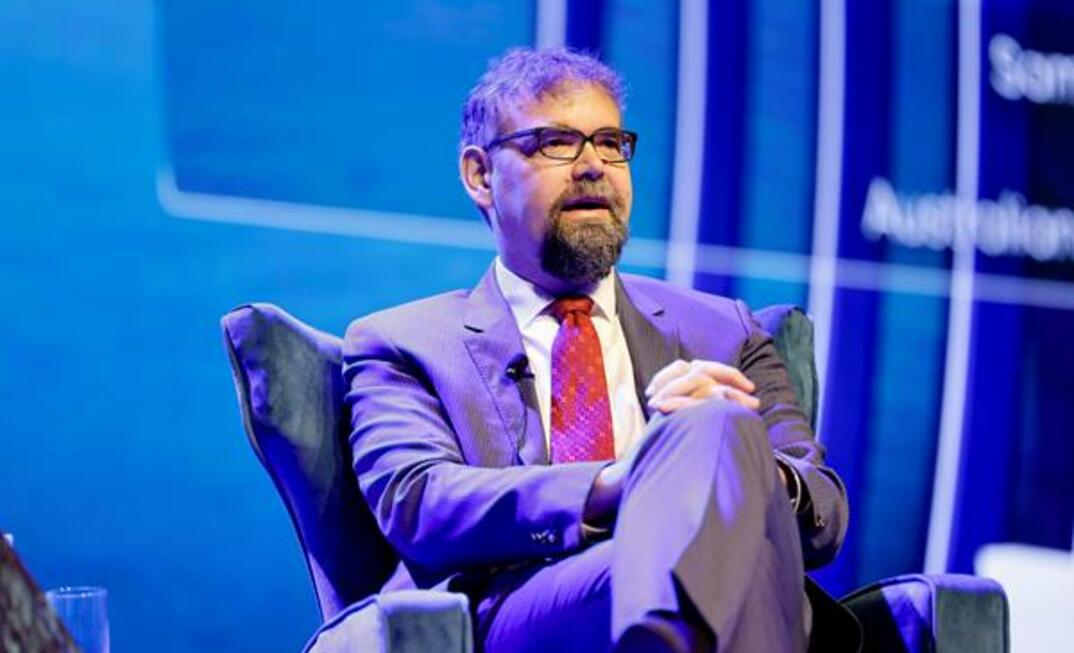Shell International Vice President of Strategy, Insights and Scenarios, László Varró, examined the current state of the global energy transformation and the challenges and opportunities for the sector on the road to net zero, on the second day of the Australian Energy Producers Conference 2024.
As the architect of the company's scenario analysis, Varró delivered an in-depth analysis of the global energy system and the importance of Australia's role as a major energy supplier.
Influenced by his experience as a former chief economist at the International Energy Agency, Varró introduced the concept of having multiple energy ‘futures' as we grapple with global geopolitical and economic challenges. He said "energy security is an overarching driver (and) all scenarios are security scenarios, but there's a main distinguishing factor of how society interprets the word 'security'."
Varró describes two main energy security pathways: "What we label in archipelagos…where the meaning of security is backward leaning, (the) meaning of security (is) elastic to the conventional energy system without fossil fuels at home.
YOU MIGHT ALSO LIKE
"And another interpretation of security is that society regards the fossil fuel-dominated energy system itself as a security risk and aims to achieve security through leaning forward for an accelerated transition," he said.
Varró pointed to the inequality of global energy use as a major issue comparing the 350 million people of the United States who use 40 TWh per year just to power their pool pumps, with the 350 million people in central Africa use a total of 40 TWh per year.
"There is no society which generated high human welfare from less than 100 gigajoules per capita energy consumption."
He cautioned Australia not to assess its energy system as "isolated" from the rest of the world, stating it "is a country which plays a critical role in the broader energy transition story of Asia."
The rubber hits the road to net zero
An another esteemed panel on Wednesday emphasised the need for policy support and incentives to drive investment in carbon capture and storage (CCS) technology. It also put the spotlight on the economic opportunities for Australia and its potential to be a major supplier of CCS for trading partners – and a key part of the decarbonisation of the region.
Shell Australia's Senior Vice President Integrated Gas Australia and Country Chair, Cecile Wake said: "CCS is an absolutely critical part of Australia's getting to net zero plan and it deserves the full-throated support of government, and the policy settings that will give the investment signals we need".
Managing Director and CEO of Santos, Kevin Gallagher said he wasn't looking for subsidies and instead the policy landscape should focus on "decarbonisation and not de-fossilisation". He said all technology types should be encouraged and "as technologies evolve and develop, let the market drive solutions to provide a stable transition."
Laurent Trost, General Manager of Yara Pilbara said "it will take years to be capable to guarantee an economically viable green hydrogen, green ammonia production" and until that time "the transition will be through carbon capture and sequestration." However, he made clear the need for CCS to be "really anchored for the long-term future" with more certain investment signals.
The panel also debated the price of energy amid cost-of-living pressures.
Jeff Dimery, Managing Director and CEO of Alinta Energy said the timing of the transition of energy is important for consumers. "If I were to replace my 1200 megawatts of capacity (at the Loy Yang B Power Station) with a combination of offshore wind and pumped hydro…what cost $1B to set up, will now cost circa $10-$12B to replace…and that is going to end up on bills. If you rush that, you will put a lot of pressure on bills," he said.
























